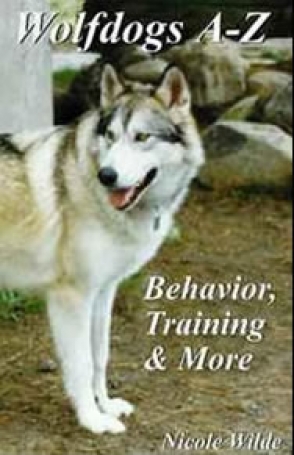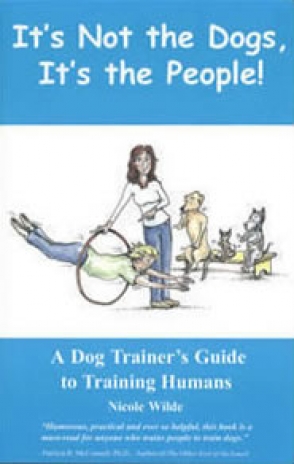This step-by-step guide contains invaluable resources for the aspiring or established professional dog trainer.
You Get What You Reward
I just returned from a training appointment with one of my favorite clients. Cory and Carol are a forty-something couple who have a twelve-year-old son and a Golden Retriever named Vinnie. Perhaps it’s my Brooklyn roots, but the dog’s name strikes me as funny and adorable. The dog is both.
I first met Vinnie when he was a young pup. The family and I had done some basic training, and set rules and boundaries to help get Vinnie’s behavior off on the right paw. Today Vinnie is five months old, and I was called in to help brush up on leashwork. After the outdoor training, Carol asked about some in-home manners issues. Apparently, the adorable, attention-seeking missile that is Vinnie likes to play fetch in the early evenings. This almost always coincides with the time the family is settling in on the plush leather couch in front of the television to relax. I suppose it’s no fun to be expecting Gray’s Anatomy only to have a dog shove toys into portions of your personal anatomy instead!
“He brings a toy over and if we don’t respond by throwing it, he shoves the toy into us over and over,” explained Carol.
“And what do you when he does that?” I asked.
“Well, at first we ignore him, but eventually, we toss the toy for him.”
So if Vinnie pesters the family long enough, they comply. Smart dog! He’s trained the family well, wouldn’t you say?
As we sat on the couch chatting, Carol added that Vinnie also seeks attention by placing one paw, then the next, then his entire body on the couch. As she relayed this information, as though demonstrating, Vinnie did exactly as she described. Carol kept talking as she surreptitiously petted Vinnie, then pushed him down after ten seconds or so. When I pointed out that Vinnie was being rewarded by the petting, Carol looked surprised, as though she hadn’t even realized she had been petting him—and she probably hadn’t. Cory chimed in that he, his wife and his son do tend to pet Vinnie before asking him to get off the couch. It was a lightbulb moment for the family; they realized that tossing the toy for Vinnie whenever he pestered them long enough, and petting him whenever he climbed on the couch, was rewarding and thereby strengthening the very behavior they were trying to stop.
We approached the problem behaviors in a few ways:
1. As a pre-emptive course, Vinnie would receive play and attention before the family’s normal television-viewing time, so that he was pleasantly tired out by the time they were ready to relax. He could also be given a stuffed Kong or other chewie to keep him busy during the family’s down time.
2. Vinnie would be given brief, frequent down-stay practice sessions during the day, so that he would soon have an alternate behavior to pestering/couch-climbing. The family would also practice intermittent down-stays during the evening relaxation period, so everyone could enjoy the evening. In the early stages, Vinnie could be tethered to the coffee table if necessary, where the family could interact with him but he could not jump on the couch. (He would be introduced to the tether in a positive manner by pairing it with stuffed Kongs and attention.)
3. We taught “not now,” which clued Vinnie in that whenever he heard those words, no further attention would be forthcoming.
4. No more rewarding Vinnie’s escalating attention-seeking behaviors! Now, whenever Vinnie approached the couch with the toy, if a family member wanted to play, they would ask Vinnie to sit or perform another known behavior, then toss the toy. If the person did not want to play, they could simply tell Vinnie “not now” or ask him to do a down-stay instead.
5. Any time Vinnie voluntarily lied down by the couch he would receive petting and attention.
This family’s situation is typical of ones trainers see every day. Regardless of how loving a family is toward their dog, or what intelligent, nice people they are, the little things that contribute to the dog’s behavior issue often go unnoticed.
Whenever your dog is displaying a behavior that you want him to stop, ask yourself how the dog is being rewarded for the behavior. Dogs, like kids, do what work, and eventually give up doing what doesn’t work. Attention-seeking in particular can be tricky, as attention consists of looking at, talking to, or interacting with the dog. So if you look over at your dog and say “Stop that!” you’re still giving attention.
Dogs are being trained around the clock whether we think it’s “training time” or not, and you get what you reward—so be sure to watch your own actions, as well as rewarding your dog for doing the right things.










